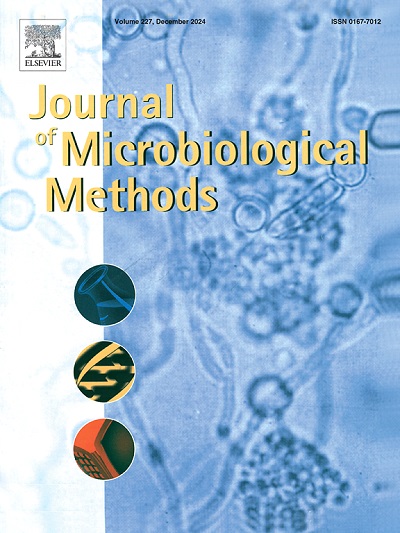阻抗流式细胞术作为细菌发酵过程中菌落形成单元的快速过程控制代理的性能鉴定。
IF 1.9
4区 生物学
Q4 BIOCHEMICAL RESEARCH METHODS
引用次数: 0
摘要
阻抗流式细胞术(IFC)对6个细菌属的集落形成单位(CFU)进行了评估。在指数、减速和平稳阶段,IFC与CFU方法几乎完全相关(R2 ≈ 1)。分化发生在死亡阶段。IFC支持在活性发酵过程中何时转移和收获细菌的决策。本文章由计算机程序翻译,如有差异,请以英文原文为准。
Performance qualification of impedance flow cytometry as a rapid in-process control proxy for Colony-forming units in bacterial fermentation processes
Impedance flow cytometry (IFC) was evaluated against colony-forming units (CFU) for six bacterial genera. Across exponential, deceleration, and stationary phases, IFC correlated near-perfectly with CFU method (R2 ≈ 1). Divergence occurred in death stage. IFC supports decision-making on when to transfer and harvest bacteria in active fermentation processes.
求助全文
通过发布文献求助,成功后即可免费获取论文全文。
去求助
来源期刊

Journal of microbiological methods
生物-生化研究方法
CiteScore
4.30
自引率
4.50%
发文量
151
审稿时长
29 days
期刊介绍:
The Journal of Microbiological Methods publishes scholarly and original articles, notes and review articles. These articles must include novel and/or state-of-the-art methods, or significant improvements to existing methods. Novel and innovative applications of current methods that are validated and useful will also be published. JMM strives for scholarship, innovation and excellence. This demands scientific rigour, the best available methods and technologies, correctly replicated experiments/tests, the inclusion of proper controls, calibrations, and the correct statistical analysis. The presentation of the data must support the interpretation of the method/approach.
All aspects of microbiology are covered, except virology. These include agricultural microbiology, applied and environmental microbiology, bioassays, bioinformatics, biotechnology, biochemical microbiology, clinical microbiology, diagnostics, food monitoring and quality control microbiology, microbial genetics and genomics, geomicrobiology, microbiome methods regardless of habitat, high through-put sequencing methods and analysis, microbial pathogenesis and host responses, metabolomics, metagenomics, metaproteomics, microbial ecology and diversity, microbial physiology, microbial ultra-structure, microscopic and imaging methods, molecular microbiology, mycology, novel mathematical microbiology and modelling, parasitology, plant-microbe interactions, protein markers/profiles, proteomics, pyrosequencing, public health microbiology, radioisotopes applied to microbiology, robotics applied to microbiological methods,rumen microbiology, microbiological methods for space missions and extreme environments, sampling methods and samplers, soil and sediment microbiology, transcriptomics, veterinary microbiology, sero-diagnostics and typing/identification.
 求助内容:
求助内容: 应助结果提醒方式:
应助结果提醒方式:


